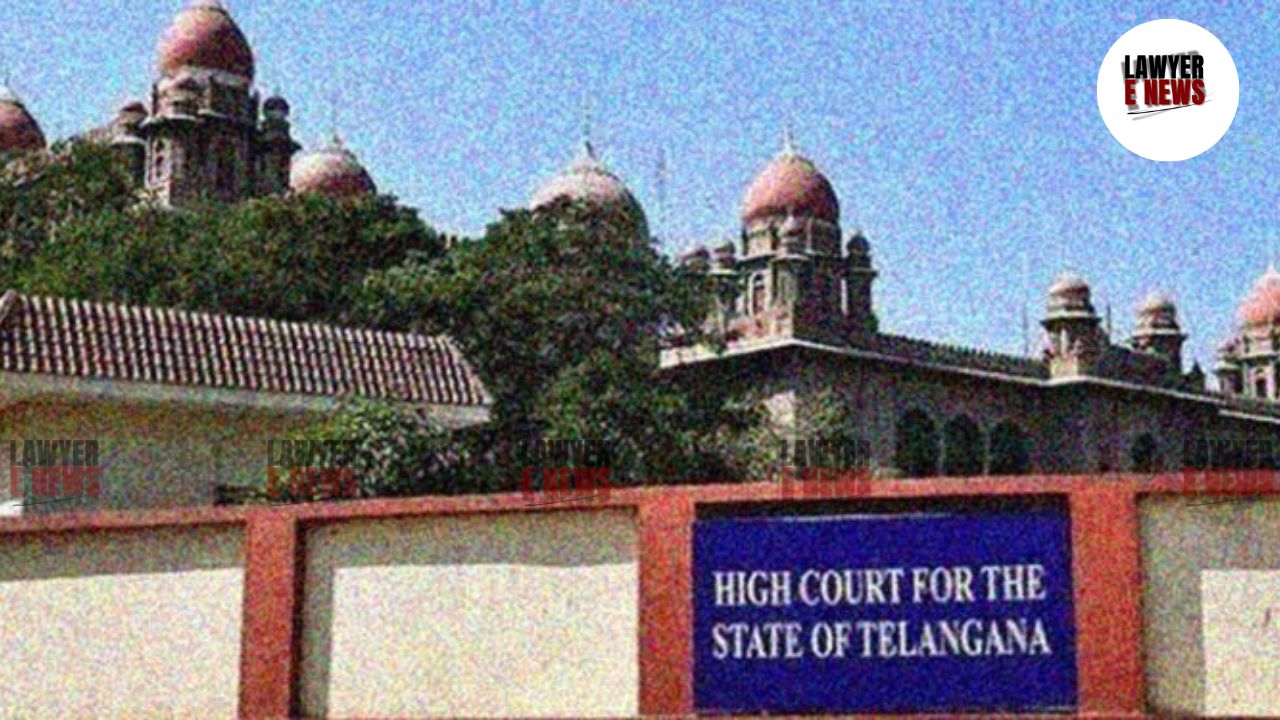-
by Admin
18 February 2026 4:37 AM



“Petitioner cannot invoke the Habeas Corpus jurisdiction when an effective alternative remedy is available under the family laws.” - Telangana High Court dismissed a father's petition under Article 226 seeking a Writ of Habeas Corpus for production of his two minor children who had been taken by their mother to the United States. The Division Bench comprising Justices Moushumi Bhattacharya and B.R. Madhusudhan Rao held that the writ petition was not maintainable, as the petitioner had a clear alternative remedy under family law statutes to execute an order granting him custody of the children.
“This is certainly not a case of illegal detention of the children or of the mother flouting any court orders.”
The petitioner, Gunda Satish Kumar, claimed to be the natural guardian and father of two minor children aged 9 and 14. He had earlier approached the Family Court under the Guardians and Wards Act, 1890, and Section 6 of the Hindu Minority and Guardianship Act, 1956, seeking a declaration of permanent custody. The Family Court passed an ex parte order on 23.12.2024, granting custody of the minors to the petitioner.
However, before this order could be enforced, the children's mother (Respondent No.6) took them to the United States during the pendency of the custody proceedings.
Four months later, the petitioner moved the High Court under Article 226 of the Constitution, seeking a Writ of Habeas Corpus to compel the production of the children.
The primary question before the Court was whether a Habeas Corpus petition is maintainable in a case where one parent removes children to another country despite a custody order in favour of the other parent.
Justice Moushumi Bhattacharya, writing for the Bench, held: “The petitioner failed to take steps for enforcing the order passed by the Family Court in the petitioner’s favour… and has instead chosen to invoke the extraordinary jurisdiction of this Court under Article 226 of the Constitution of India.”
The Court stressed that: “The petitioner has an effective alternative remedy under the relevant statutes for enforcing the order of permanent custody.”
It also noted the crucial fact that the Family Court's order was passed ex parte, and therefore did not involve a willful disobedience or any contemptuous conduct by the mother.
Rejecting reliance on the Supreme Court’s decision in Yashita Sahu v. State of Rajasthan [(2020) 3 SCC 67], the Court held: “The facts in Yashita Sahu did not involve any order passed by the Family Court in favour of one parent… In that case, the issue was the initial custody itself, not execution of an existing custody order.”
The petitioner also cited Vishal Verma v. State (NCT of Delhi). The Court distinguished it on facts, observing: “In Vishal Verma… the mother violated specific visitation orders and left the country without the Court’s permission. Here, the order was ex parte and there is no evidence of willful disobedience.”
Thus, the Court found no parallel between the two cases and held that Habeas Corpus was not an appropriate remedy in the absence of proven illegal detention or contempt.
Holding that a writ of Habeas Corpus cannot substitute for statutory remedies in custody matters, especially where the order sought to be enforced was ex parte and the children are lawfully in custody of a parent abroad, the Telangana High Court dismissed the petition, stating: “The present Writ Petition is not maintainable.”
The Court emphasized the availability of execution proceedings before the Family Court as the proper legal course.
Date of Decision: 7th April 2025
